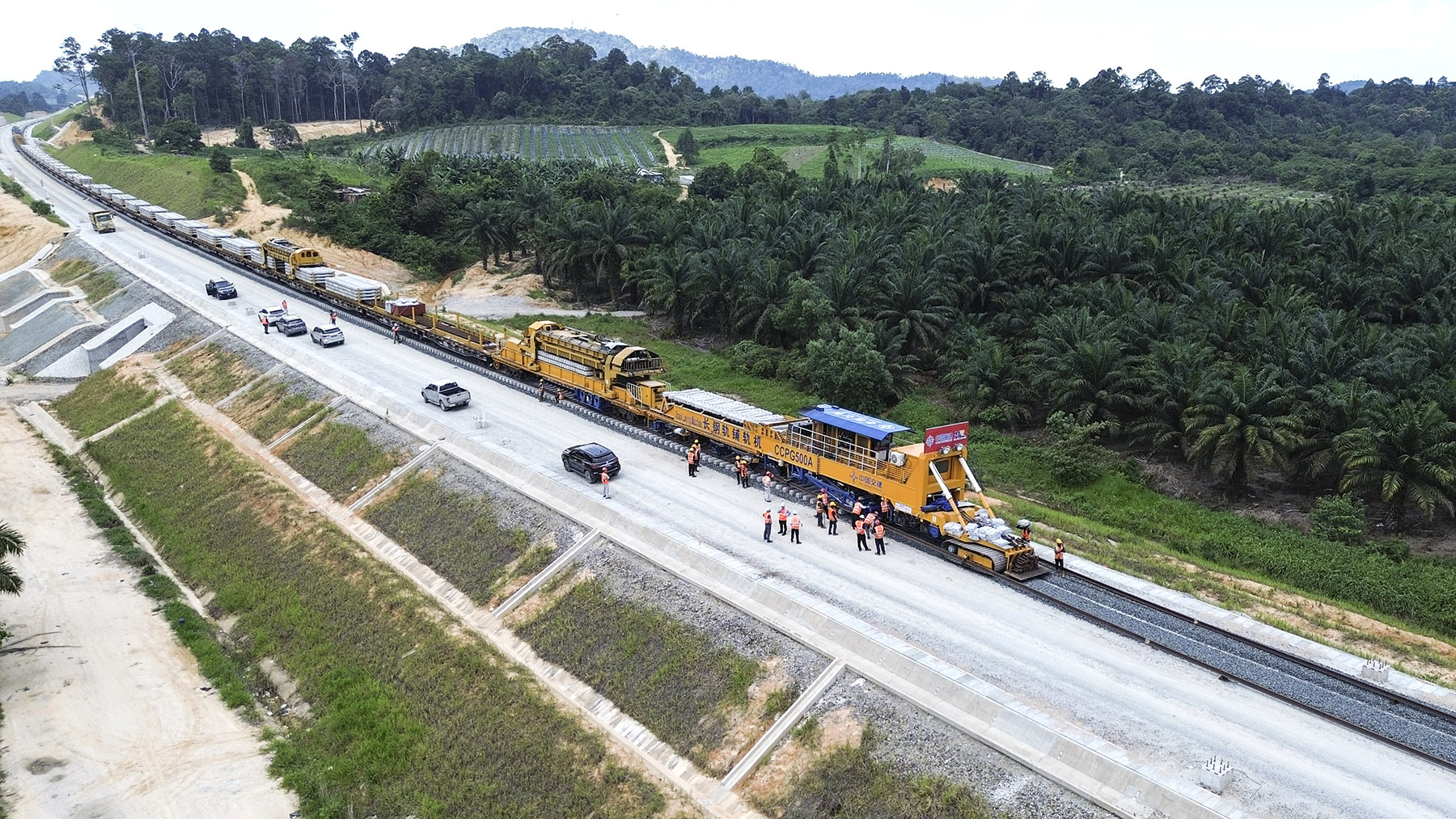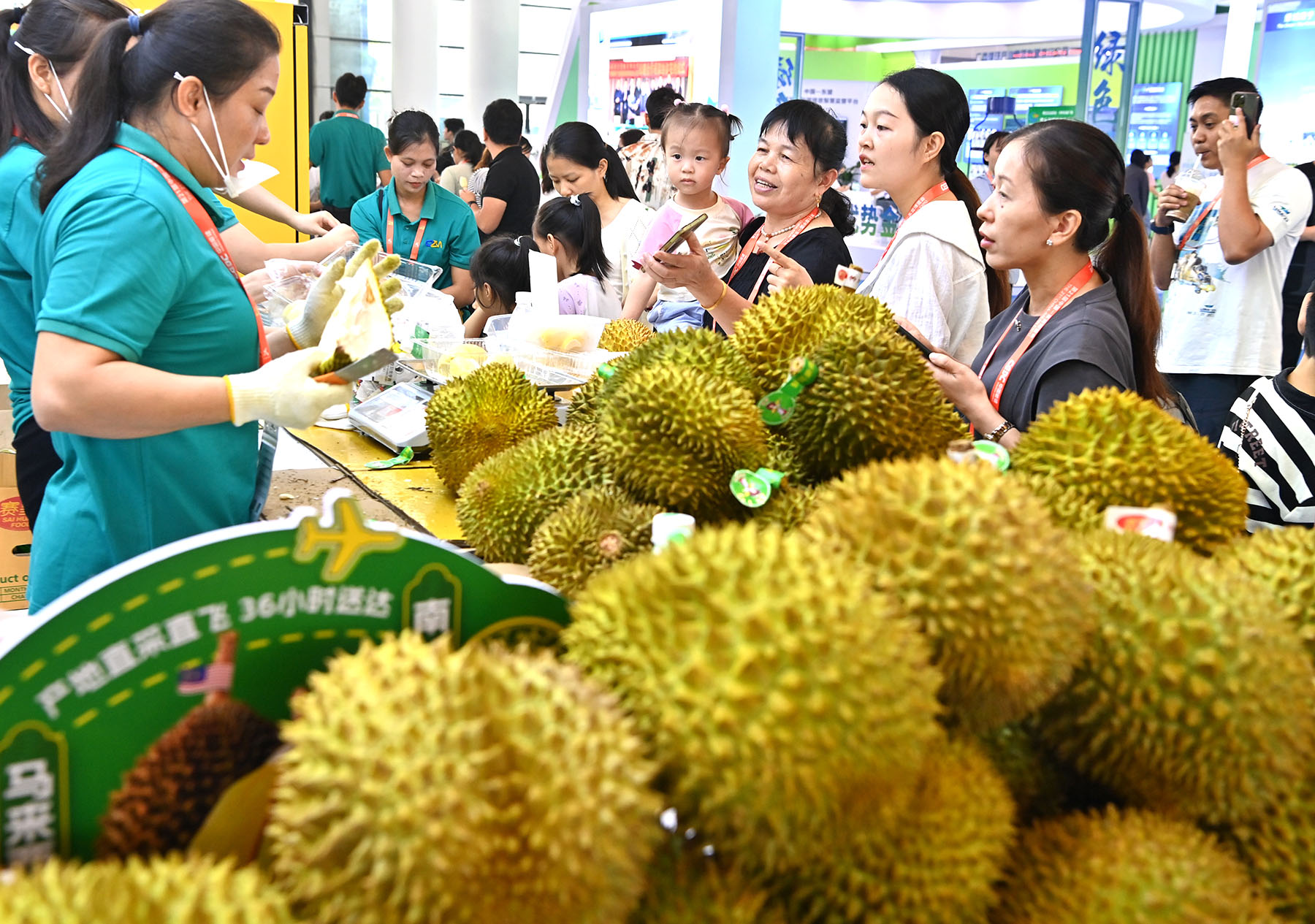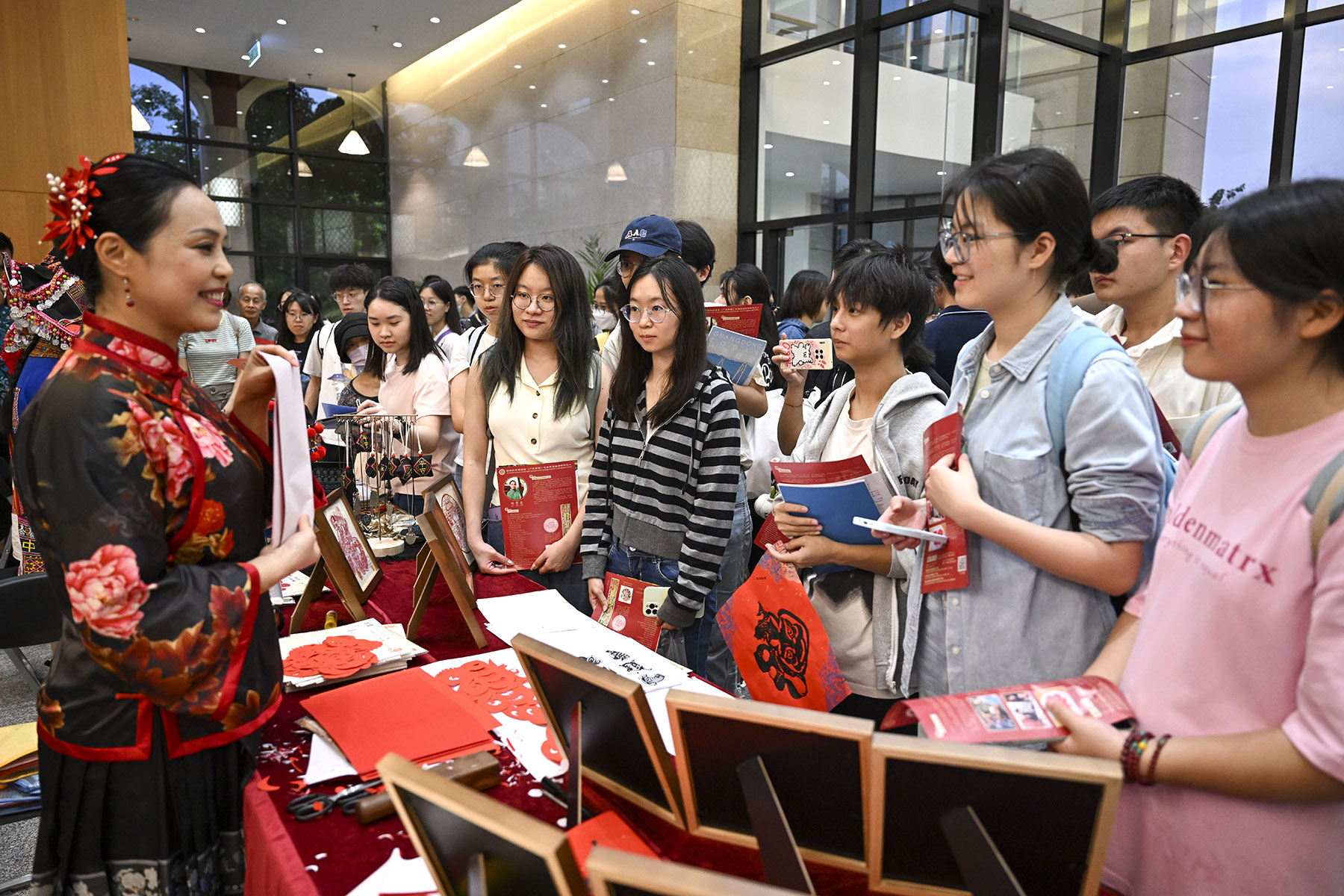President aims to deepen collaboration with Malaysia, a Southeast Asian nation where Chinese have left an indelible mark

Over three decades ago, when President Xi Jinping — who was then the top official of Fuzhou, Fujian province — took an investment promotion trip to Malaysia, he was deeply impressed by two symbolic sites.
One is the Poh San Teng Temple, a long-standing homage to renowned Chinese navigator Zheng He (1371-1433), who lived during the Ming Dynasty (1368-1644). The other is the city of Sibu, which became known as "New Fuzhou" after Wong Nai Siong, a Fuzhou native, migrated to Malaysia with over 1,000 Chinese people more than a century ago.
Both places testify to the millennium-old China-Malaysia friendship, a bond that Xi has repeatedly pledged to inherit and cement as China's head of state.
READ MORE: Beijing, Kuala Lumpur set to expand cooperation
During a 2013 visit to Malaysia, he quoted a local proverb to illustrate the commitment: "Flowing water cannot be severed."
It was also during his Southeast Asia tour that year to Indonesia and Malaysia that Xi again invoked the legacy of Zheng He and put forward the 21st Century Maritime Silk Road, an essential component of the Belt and Road Initiative.
As Xi travels back to Malaysia for another state visit this week, the two nations are poised to further build on their time-honored friendship and fruitful cooperation, and steer bilateral relations toward a more promising shared future in the new era.

Cooperation on track
On a hillside overlooking the East Coast Rail Link project in the Malaysian state of Pahang, a string of bold Chinese and Malay characters stand out against the landscape: "Extensive consultation, joint contribution, shared benefits — building a better future."
The phrase, concise and resonant, is the main tenet of the BRI, which has now become a leading global infrastructure and development framework and has fostered a host of flourishing partnerships across continents.
As a vital node along the ancient Maritime Silk Road, Malaysia was among the first nations to participate in the BRI. Thanks to joint efforts and Xi's steadfast push, bilateral collaboration within the initiative's framework has borne rich fruit.
A notable example is the ECRL, a 665-kilometer railway whose construction is in full swing. In a sign of the importance Xi attaches to the flagship project, he dispatched a special envoy to its launch in 2017.During his meeting with Malaysia's king, Sultan Ibrahim Iskandar, in Beijing last September, Xi once again called for concerted efforts to ensure its success.
Once completed, the railway will bridge Malaysia's less-developed east coast with its economic powerhouse on the west coast, enhancing connectivity and fostering balanced growth. It will also potentially link up with the China-Laos and China-Thailand rail networks, which are all part of the New International Land-Sea Trade Corridor, a vital international trade route.
"If that were to materialize, the ECRL would be able to tap into Thailand's entire rail network and link with Kunming in southwestern China via Laos, achieving a greater free flow of goods and passengers within the region," said Malaysian Transport Minister Anthony Loke Siew Fook.
Beyond the rail project, China-Malaysia collaboration is expanding across the horizon. China has remained Malaysia's largest trading partner for 16 consecutive years, with the volume hitting an all-time high of $212.04 billion in 2024. In recent years, tropical fruits from Malaysia, including durian, mangosteen and jackfruit, have become increasingly popular among Chinese consumers.
In his meeting with Malaysian Prime Minister Anwar Ibrahim last year in Beijing, Xi encouraged Malaysia to bring more of its quality and specialty products to the Chinese market, and urged closer cooperation in such new areas as the digital economy, artificial intelligence and new energy.
"The flourishing economic ties between Malaysia and China demonstrate the resilience and mutual benefits of our bilateral relationship," said Samirul Ariff Othman, an economist at Malaysia's Universiti Teknologi PETRONAS. "The continued expansion of investments in high-value sectors such as technology, green energy and manufacturing will further deepen our cooperation."

Mutual support
In 2012, Yong June Kong, a young Malaysian man who had studied medicine in China, donated his hematopoietic stem cells to a Chinese boy who had leukemia, successfully saving the 7-year-old child and making himself the first foreign stem cell donor in China.
During Xi's 2013 visit to Malaysia, the president referenced this moving episode to highlight the deep friendship between the Chinese and Malaysian people.
"We will also not forget" the story, Xi said with deep emotion.
Yong was thrilled to learn that Xi had talked about his story.
"I never imagined that such a simple act would receive such high-level recognition," Yong, now a doctor at Renji Hospital in Shanghai, told Xinhua. "I couldn't sleep the whole night after learning that the Chinese president had spoken of me."
Xi's recognition was not only a personal honor, but also a tribute to the spirit of mutual support between the nations, Yong added.
"This encouragement has strengthened my resolve to stay in China, to continue saving lives during my career, to participate in more blood donations and other charitable activities, and to become a bridge of friendship between China and Malaysia," he said.
As a Malay proverb once quoted by Xi goes: "A friend who understands your tears is much more valuable than a lot of friends who only know your smile." In his eyes, the two countries are good friends who can get along well, and trust and rely on each other.
Back in 1974, with strategic vision, China and Malaysia broke the ice of the Cold War and established diplomatic ties, with the latter being the first member of the Association of Southeast Asian Nations to do so. Later on, Malaysia also became the first to invite China to participate in an ASEAN dialogue and the first to host the China-ASEAN summit.
During his 2013 Malaysia trip, Xi recalled how both countries fought against the 1997 Asian financial crisis and the 2008 global economic tsunami, as well as the assistance extended by Malaysia to China in the aftermath of the devastating 8.0 magnitude earthquake that struck Wenchuan, Sichuan province, in 2008. It was also during that trip that bilateral ties were elevated to a comprehensive strategic partnership.
A decade later, Xi and Anwar reached a consensus in Beijing on jointly building a China-Malaysia community with a shared future, opening a new chapter in bilateral relations.
At a broader level, Xi highly regards Malaysia's pivotal role in regional cooperation as a founding member of ASEAN and a key driver of East Asia cooperation. The Chinese president has reiterated China's support for Malaysia's ASEAN 2025 chairmanship and its commitment to ASEAN centrality and strategic independence.
"Malaysia-China relations have grown from strength to strength in recent decades," said Samirul, the Malaysian economist. "Today, this partnership is more dynamic than ever, underpinned by deep economic collaboration and strong peopleto-people exchanges."
Promoting friendship
As China and Malaysia celebrated the 50th anniversary of their diplomatic ties last year, Tan Lak Hon, along with 86 other Malaysian students at Tianjin University in China, wrote a letter to Xi, expressing their commitment to serving as messengers and promoters of Chinese-Malaysian friendship, as well as their aspiration to help build the China-Malaysia community with a shared future.
In a message sent later that year to King Sultan Ibrahim marking the historical occasion, Xi expressed his delight in hearing from those students.
"I am gratified that the cause of friendship between the two countries will be carried forward," Xi said.
Greatly encouraged, Tan said he plans to create a social media account to share his study and travel experiences in China with friends back in Malaysia.
"I will actively serve as an advocate for our friendship and help foster meaningful communication between students from our two countries," he said.
ALSO READ: Xi's SE Asia visit: Neighbors prioritized in diplomacy
Xi himself has been a staunch champion of stronger cultural and people-to-people exchanges between the two nations. He has repeatedly stressed that amity between the people holds the key to sound state-to-state relations.
During his 2013 visit to Malaysia, Xi witnessed the signing of an agreement to establish a Malaysian branch of Xiamen University, the first overseas campus of a Chinese higher education institute. Like Fuzhou, Xiamen is a major city in Fujian.
The university has a special relationship both with Malaysia and with Xi. It was founded in 1921 by Tan Kah Kee, a patriotic overseas Chinese businessman and philanthropist who was born in Xiamen and achieved great business success in Malaysia and Singapore. When Xi worked in Xiamen, he developed a profound bond with the university.
Today, the Malaysian branch of Xiamen University has 10 schools and over 9,100 students from dozens of countries and regions. So far, more than 6,300 students have graduated from that campus, making it a shining example of China-Malaysia education cooperation and a key platform to boost mutual understanding between different civilizations.
Many of those graduates share Tan's determination to promote intercultural communication and people-to-people friendship, a theme that features prominently in Xi's approach to international relations.
"You name it. Which other leader articulates the vision for the future while trying to understand civilization, values and culture," Anwar once noted. "That is why I feel certainly comfortable in exchanges with the president for his foresight and vision."


